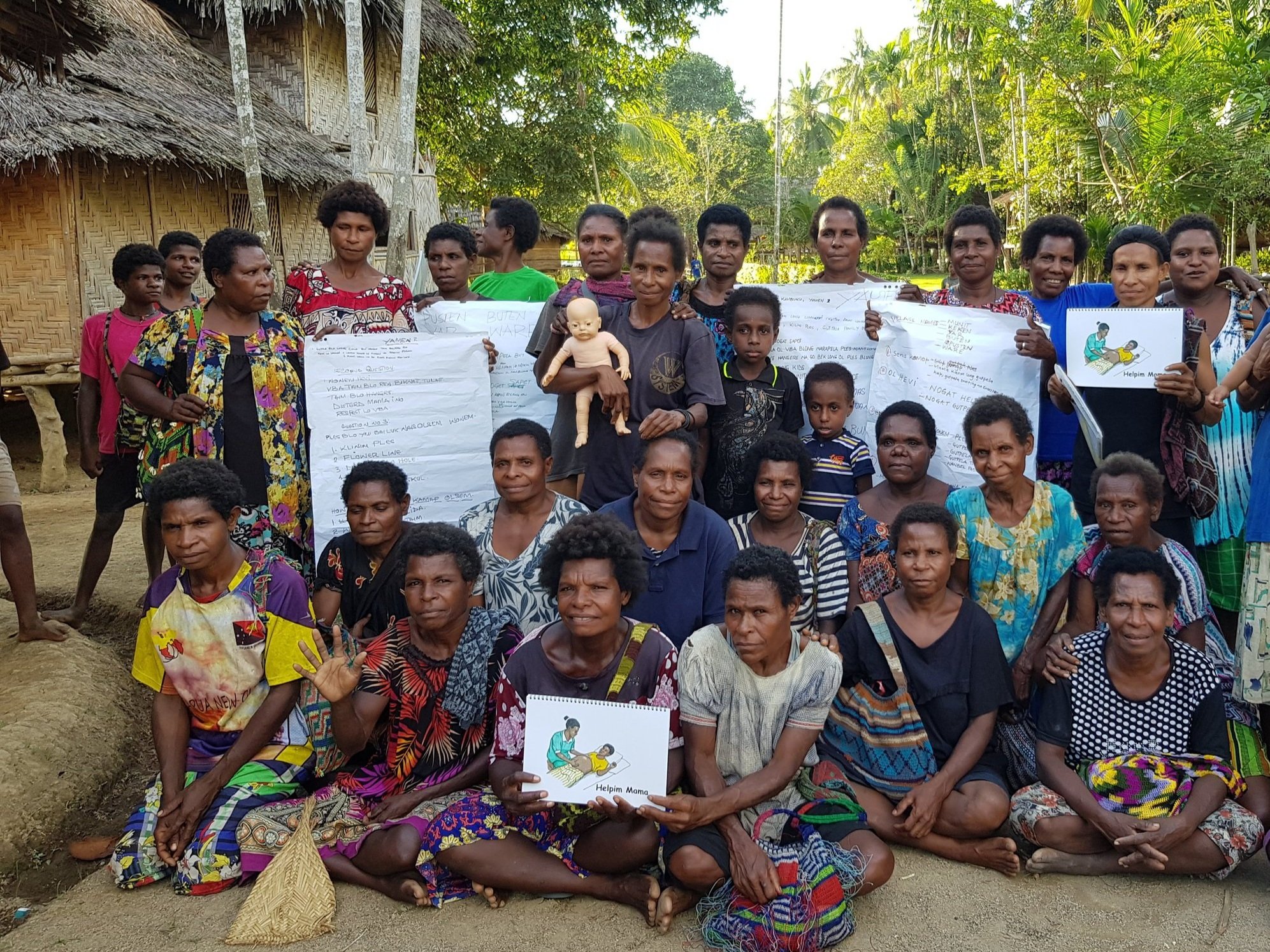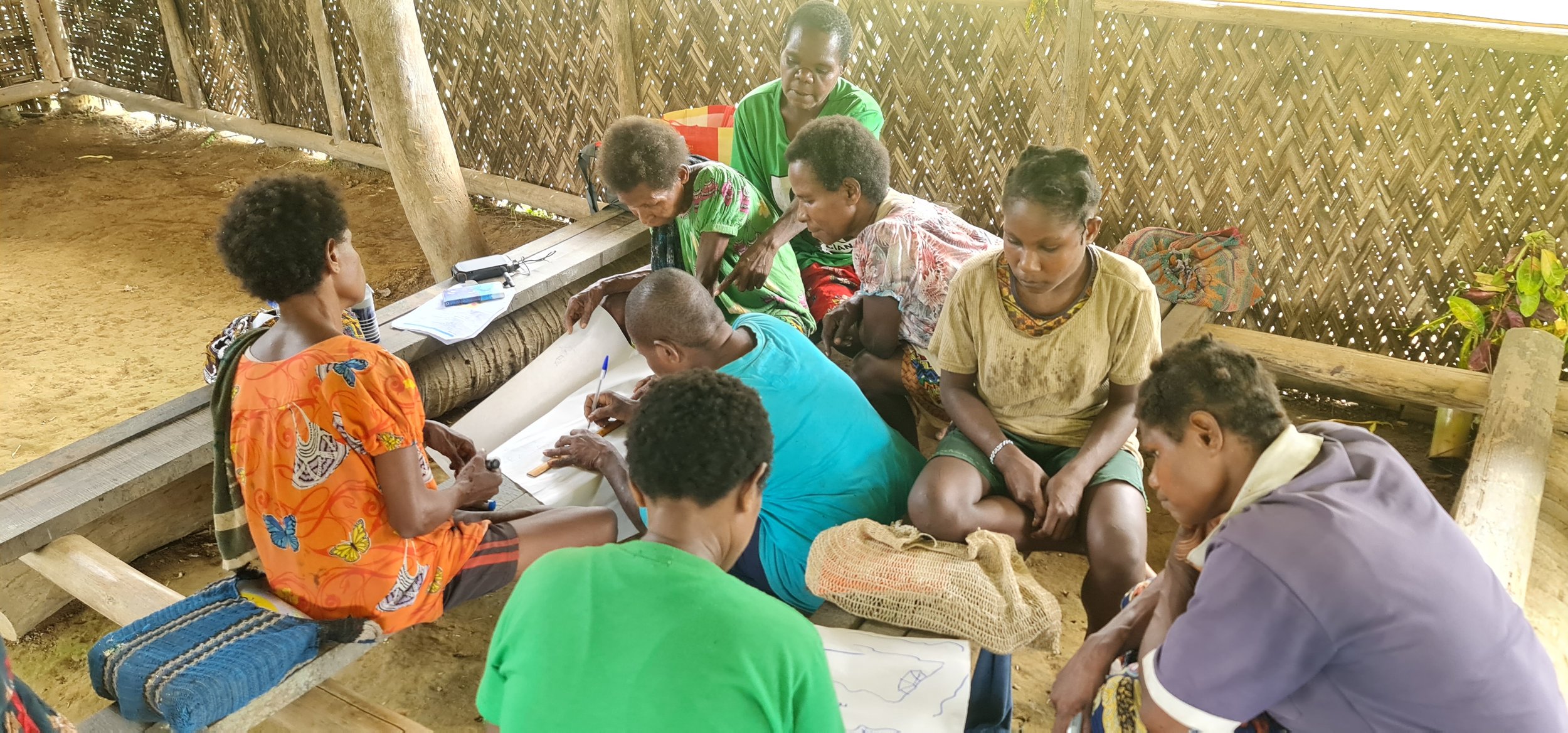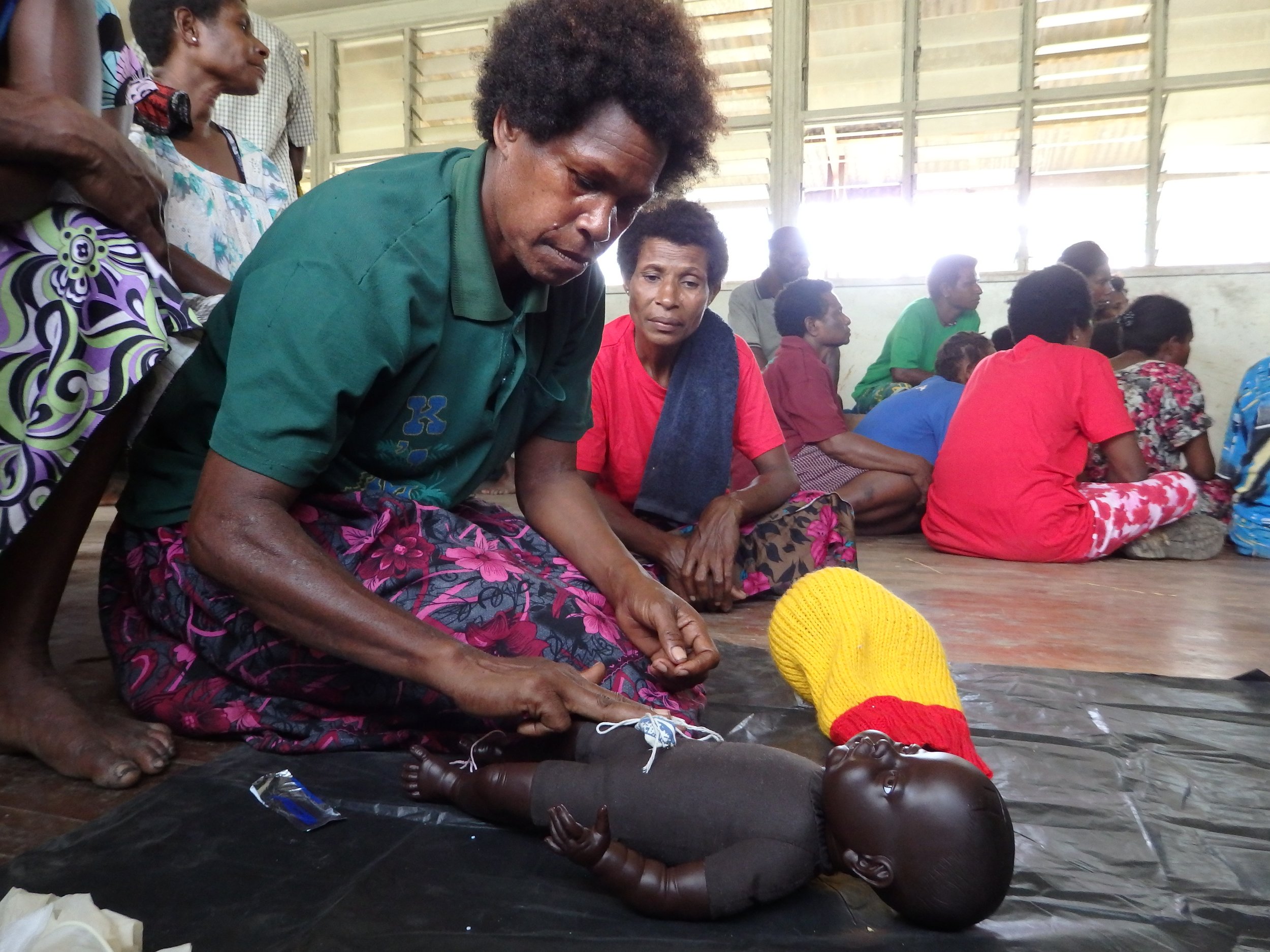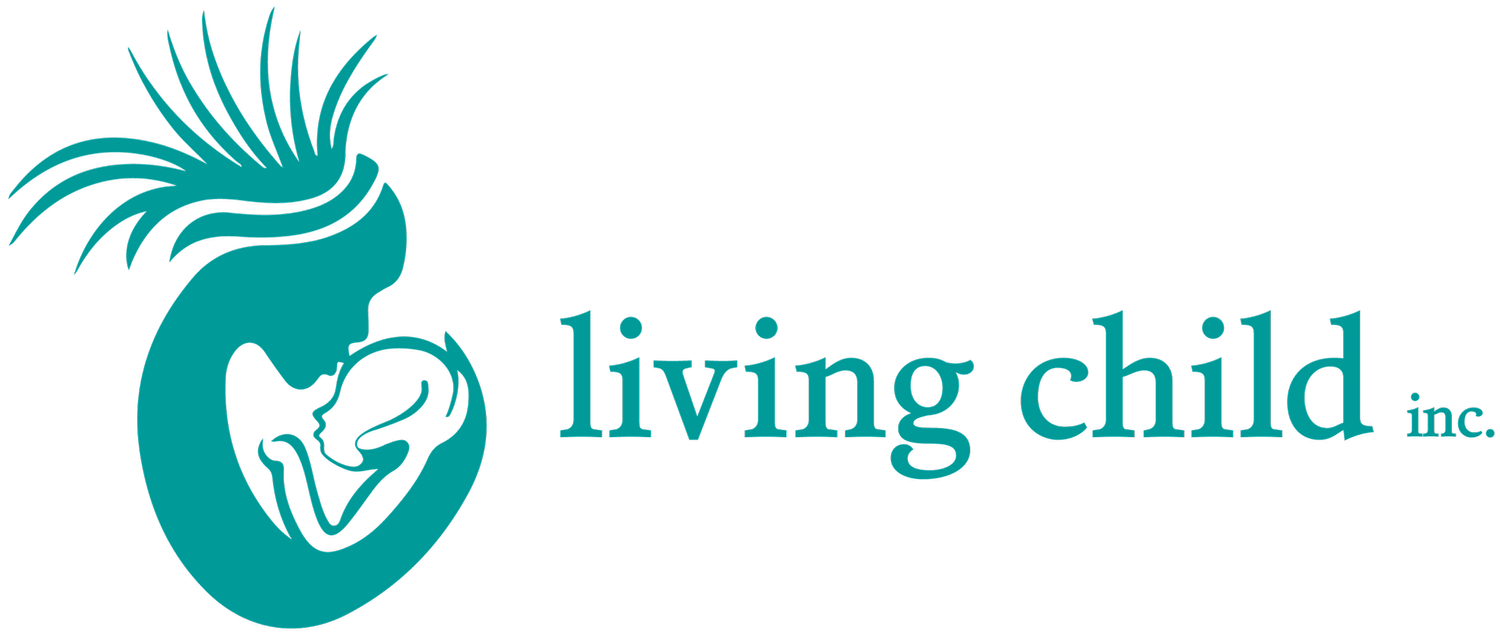
helpim mama program
In remote villages of Papua New Guinea, pregnancy and childbirth can be life-threatening experiences. Many women face considerable challenges in accessing government health services due to lack of infrastructure, workforce shortages and physical isolation of rural/remote villages. The nearest health centre is often days away by foot or canoe. At Living Child, we are committed to changing this reality by equipping communities with the knowledge, skills, and resources they need to ensure safer pregnancies and births.
Our maternal health program focuses on training Village Birth Attendants (VBAs) in areas where no formal healthcare exists. These dedicated women are often the only support pregnant mothers have, and we empower them with essential skills in recognising complications that require urgent referral and how to assist in providing a safe, hygienic space for a birth when it is not possible for a woman to travel. To support their work, we provide clean birth kits, thanks to our friends at Birthing Kit Foundation Australia.
We also run an upskilling program for community health workers, nurses and midwives in midwifery skills, equipping them with the knowledge and confidence to provide quality maternal care in their communities. Through practical training and mentorship, we strengthen the capacity of frontline health workers, bridging the gap in critical maternal and newborn care services.
At the heart of our educational approach are our tailored resources, including a comprehensive flipchart and guide designed specifically for low-literacy settings. These materials help VBAs and healthcare workers understand and teach best practices in pregnancy, birth, and postpartum care. By combining hands-on training with culturally appropriate educational tools, we are building a network of skilled caregivers who can save lives and ensure that women in Papua New Guinea can give birth safely and with dignity.






looking ahead
LCPNG is focused on expanding our program in both reach and content. We hope to be able to introduce our pre-existing program to new areas that request a partnership with us, providing them with:
Training and support to implement the Care Groups model to ensure every household can be reached by Healthy Islands education and resources
Training for their Village Birth Attendants and Village Health Volunteers
Essential resources to enable them to live a safe, healthy life, such as solar power, infrastructure development, clean birth kits, reusable menstrual hygiene kits, water tanks, tippy taps and culturally-appropriate, high-quality educational flipcharts
In future, we aim to develop a broader range of modules into flipcharts based on issues identified by the community, such as: Resilience, Safety & Disaster Preparedness, Early Childhood Education, Law and Order, and General Health.
We recognise and acknowledge that many partners are involved in the practical application of these programs, and are always seeking to strengthen our partnerships in the region, including with other NGOs and Provincial Health Authorities.
can you help us? donate now!
Barriers to Success in Rural, Remote Locations
Implementing health and community programs in rural, remote locations along the Sepik River, presents significant challenges. The lack of established health facilities and limited transport options - often only accessible by boat - creates logistical barriers to reaching these communities. Extreme environmental conditions further complicate efforts, with frequent flooding, difficult terrain, and isolation impeding progress.
The lack of accessible health and education services limits opportunities outreach and support, making it difficult to promote key health initiatives and behaviour changes. The cost of fuel for transportation is a major financial strain, affecting the delivery of essential resources and the ability to maintain oversight by trained health workers.
Additionally, while local volunteers play a crucial role in program success, sustaining and supporting them is a challenge. These volunteers often lack consistent access to training, compensation, and necessary resources. The cost of resourcing the communities with essential supplies adds another layer of financial strain. The high ongoing cost of providing oversight through trained health workers and international volunteers - who must navigate travel limitations and logistical hurdles - further exacerbates the challenges.
Despite these barriers, Living Child remains committed to overcoming these challenges by strengthening local partnerships, mobilising resources, and developing innovative solutions to improve health outcomes in the region.
Our team have many years of experience running transformative health and community development programs in rural PNG. We would be pleased to hear from any organisation interested in support for their programs, access to resources, or virtual/face-to-face workshops in all areas of PNG.
Our Country Director, Ruth Injo, is a highly qualified public health professional, with Bachelor and Master’s degrees in Public Health, and is available to consult to your organisation on health promotion initiatives. Ruth can be reached via ruth@livingchildinc.org.au.
Our wider team across Australia and Papua New Guinea are also available for consultation, and together possess a diverse skillset, including project management, logistics coordination, community education, graphic design, maternal health training and security/risk assessment (in partnership with EXAS Group). We believe that sharing our knowledge, experience and expertise is a critical part of improving outcomes for rural/remote communities and we are confident in our capacity to assist your organisation in finding solutions to complex problems.

